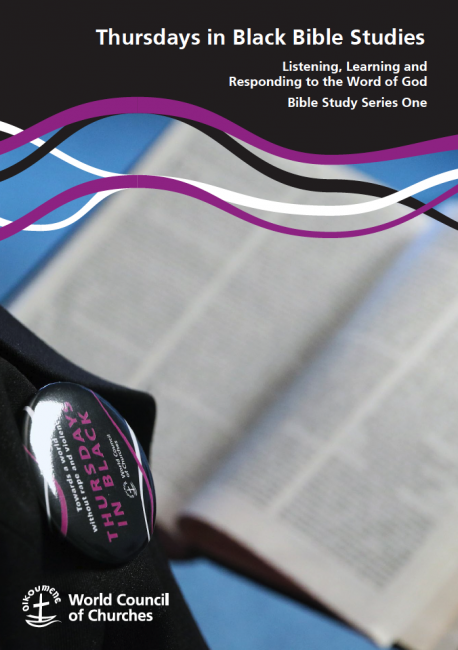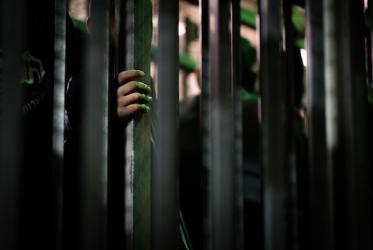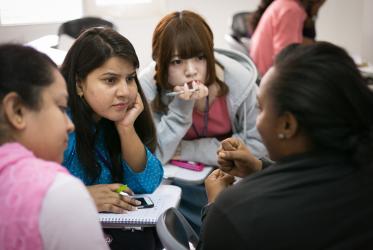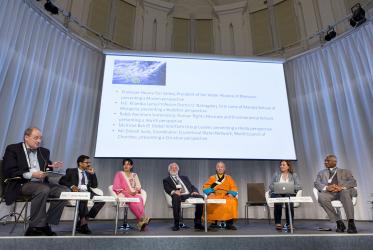Displaying 1 - 20 of 36
Pan-African Women of Faith and the Vision of Christian Unity, Mission, and Justice
01 November 2023
Thursdays in Black Bible Studies Series 1
Listening, Learning and Responding to the Word of God
21 October 2021
Dr Abuom reflects on women of faith as healers of creation
05 October 2021
South Sudan Church leaders welcome new cabinet
15 March 2020
Peacemakers at work in Sri Lanka
29 April 2019
Fr Alexi - a peacemaker in Syria
21 December 2018
A moment in ‘Time’: an interreligious vision in Erlangen
20 December 2018
African women embark on pilgrimage in Burundi
29 November 2017
Women in development create space for hope in Egypt
15 June 2017
WCC general secretary speaks on religion and discrimination
14 February 2017
Tveit offers input at religion and development meeting
03 October 2016
In Ghana, women bring open minds, honest words
05 July 2016














